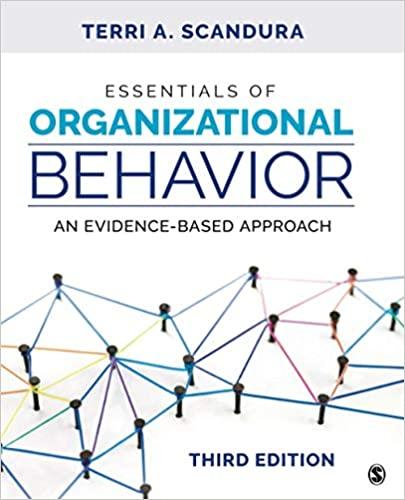Jamal is 22 years old and an enthusiastic new starter. This is the career that hes wanted
Question:
Jamal is 22 years old and an enthusiastic new starter. This is the career that he’s wanted since high school and, now that he’s got his degree and joined your team as its young leader, he wants to impress his new colleagues with his ambition and creativity. But he soon finds the going tough. Some of his fellow team members don’t appreciate his eagerness, and they are wary of his new ideas. The team is a mix of ages. Some are in their 30s or 40s, and others are nearing retirement and have been at the company for years. They feel that Jamal doesn’t understand the way that things get done in the organization. His enthusiasm and energy are starting to wane as he feels worn down by their reluctance to consider new ideas. With five generations now in the workplace, it’s important to learn to manage people from different cohorts. Traditionalists and baby boomers are staying in the workforce longer. Peter Cappelli, professor of management at the Wharton School and coauthor of Managing the Older Worker, says, “It’s more common to see someone younger managing someone older.” This can lead to tension on both sides. “Maybe there is a feeling of, why am I being bossed around by someone without a lot of experience?....
Discussion Questions
1. How would you feel about managing an employee who is the same age as your parents
2. Give examples of how to best motivate
(a) traditionalists,
(b) baby boomers,
(c) gen X,
(d) millennials, and
(e) gen Z. What is important to each cohort?
3. Describe ways that organizations can support cross-generational collaboration.
Step by Step Answer:

Essentials Of Organizational Behavior An Evidence-Based Approach
ISBN: 9781544396781
3rd Edition
Authors: Terri A. Scandura





